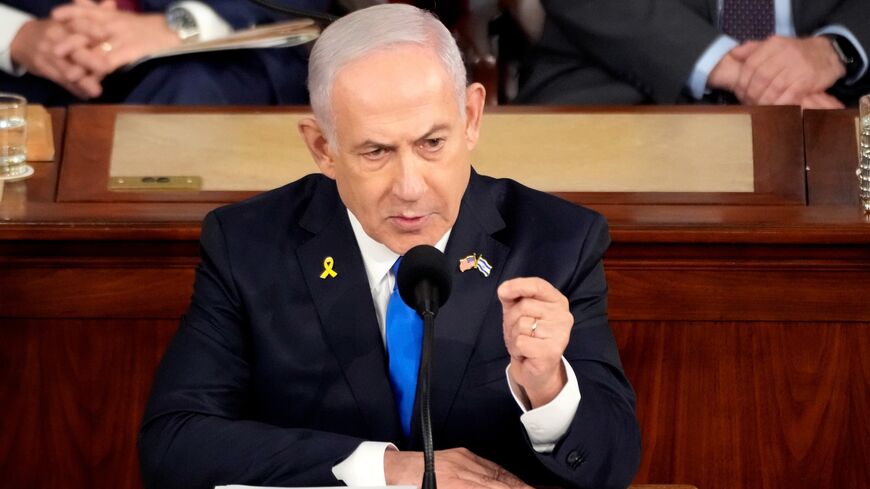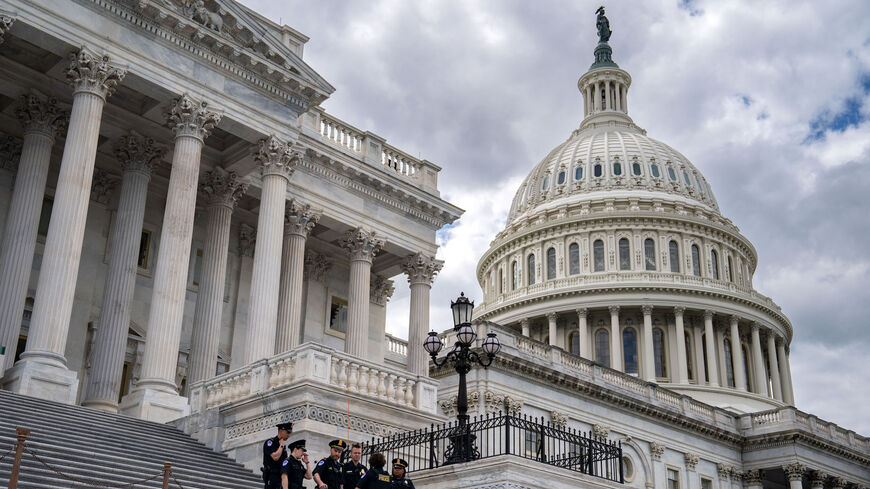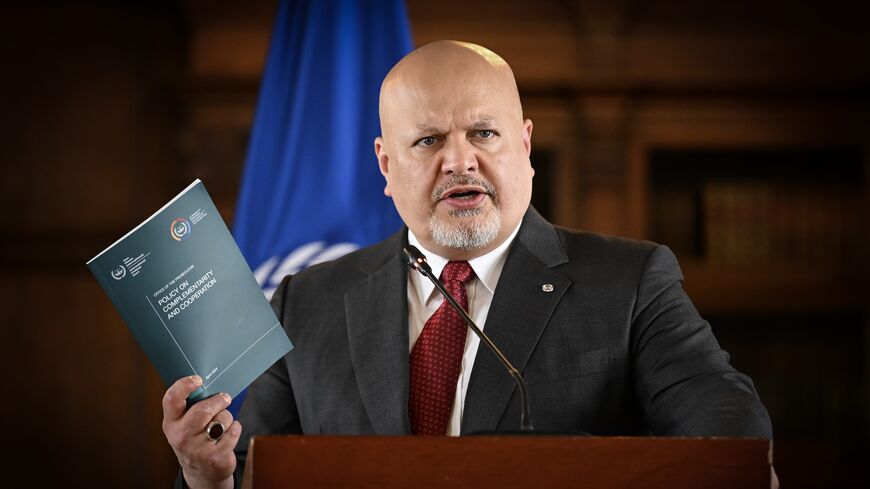Boycotts, Gaza protests: What to expect from Netanyahu’s Congress address
Vice President Kamala Harris is skipping the speech, and protests could erupt in the chamber over Israel’s war in Gaza.

Tension continues to build ahead of Israeli Prime Minister Benjamin Netanyahu’s speech to the United States Congress on Wednesday. Dozens of Democrats plan to boycott the speech, and protests are expected on Capitol Hill over Israel’s nine-month war with Hamas. Attention is also fixed on the families of hostages still held by Hamas who will be in the chamber. Eight US citizens are among the remaining 120 hostages held in Gaza since the Oct. 7 Hamas attack on Israel.
Here’s the state of play ahead of the speech:
How can I tune in?
Netanyahu steps behind the podium at 2 p.m. Eastern time. C-SPAN will carry the speech on its website, and several news outlets will livestream on YouTube. Netanyahu makes history with his fourth address to a joint session, bypassing the record for a foreign leader of three that he shared with Winston Churchill.
Who plans to boycott?
Vice President Kamala Harris is the biggest name not in attendance on Wednesday. Nine Senate Democrats and 26 House Democrats have announced they will skip the speech. Sen. JD Vance (R-Ohio) will also miss due to “duties to fulfill as the Republican nominee for vice president,” a Trump campaign adviser said.
A previously scheduled campaign stop meant Harris sidestepped the politically charged decision on whether to attend. She plans to meet with Netanyahu privately later this week. Harris is widely viewed to be left of President Joe Biden on the war in Gaza. Her absence Wednesday could indicate a frosty future relationship with Netanyahu if she wins the White House.
With the vice president out, the role of presiding over the joint session falls to President Pro Tempore Patty Murray (D-Wash.). But Murray has declined. Senate Foreign Relations Chairman Ben Cardin (D-Md.) will instead take the seat behind Netanyahu on the dais.
The cross section of Democrats skipping the speech signals that disapproval of the Israeli leader runs deep within the party, even among lawmakers still strongly committed to Israel’s security.
“Israel’s execution of its war in Gaza under the direction of Prime Minister Netanyahu with 39,000 Palestinians dead and 90,000 injured is a brutal strategy beyond any acceptable level of self-defense,” Sen. Dick Durbin, the second-ranking Senate Democrat, said in a statement.
Fierce critics of the war in Gaza, like Sens. Bernie Sanders (I-Vt.), Elizabeth Warren (D-Mass.) and Chris Van Hollen (D-Md.), and Reps. Alexandria Ocasio-Cortez (D-N.Y.) and Ilhan Omar (D-Minn.) are also boycotting. Omar told reporters she gave her ticket to the event to family members of a hostage held by Hamas.
Sen. Tim Kaine (D-Va.) said a previously scheduled event in the neighboring state of Virginia meant he could not attend. Rep. Jim Clyburn (D-S.C.) will bypass the speech and host a separate event with families of the hostages.
Who plans to attend?
All four congressional leaders signed off on inviting Netanyahu to speak. On Wednesday, Senate Majority Leader Chuck Schumer (D-N.Y.), House Speaker Mike Johnson (R-La.), Senate Minority Leader Mitch McConnell (R-Ky.) and House Minority Leader Hakeem Jeffries (D-N.Y.) are all expected to attend. The highest-ranking US Jewish elected official, Schumer will be in the chamber after accusing Netanyahu of being an “obstacle” to peace in a controversial speech in March in which he called for the prime minister to be ousted.
Staunch Democratic supporters of Israel, such as Rep. Jared Moskowitz (D-Fla.), will make an appearance.
Rep. Jerry Nadler (D-N.Y.), one of the top-ranking US Jewish Democratic lawmakers, said he would attend — but not before issuing a scathing rebuke of Netanyahu, calling him “the worst leader in Jewish history since the Maccabean king who invited the Romans into Jerusalem over 2,100 years ago.”
“The prime minister is putting the security of Israel, the lives of the hostages, the stability of the region and longstanding Israeli democratic norms in perilous jeopardy, simply to maintain the stability of his far-right coalition and absolve him of his own legal troubles,” Nadler said in a statement.
Dozens more Democrats have not indicated whether they will boycott the speech, leaving it down to the last minute whether Netanyahu will face more empty seats than his last address in 2015 when 58 lawmakers boycotted.
What went down at the last speech?
Back in 2015, Netanyahu drew fire from Democrats for accepting a Republican invitation to address Congress. Netanyahu used the speech to criticize the Iran nuclear deal. It was the Obama administration’s top foreign policy priority at the time.
Some Democrats could exit mid-speech on Wednesday if they see the prime minister using the chamber to take another swipe at a Democratic administration’s policies.
“If it’s a repeat of 2015,” Rep. Jake Auchincloss (D-Mass.) told Jewish Insider, he plans to walk out. “I would encourage Democrats broadly to make that our approach,” Auchincloss added.
Other Democrats will watch to see if Netanyahu tries to use the Capitol spotlight to clean up political problems at home. The prime minister faces increasing pressure within his religious-nationalist coalition not to accept a proposed cease-fire and hostage deal, while political rivals outside the bloc accuse him of dragging out the war to hold on to power.
How likely are protests inside the chamber?
Netanyahu’s visit has already triggered large-scale protests in Washington. US Capitol Police have brought in New York police to help maintain control.
Hundreds of protesters were arrested Tuesday after staging a sit-in at a congressional office building while chanting “Let Gaza live.” Similar demonstrations could be seen on Wednesday. Police have erected anti-scaling fencing around the Capitol and closed some congressional buildings to the public. But Netanyahu could still face critics inside the chamber.
Johnson warned lawmakers in a letter that their guests would be removed from the chamber and could face arrest if they disrupt the speech. But some family members of hostages or activists could conclude that hijacking attention from Netanyahu on an international stage is worth that risk.






